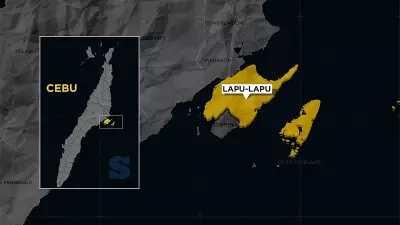
The Department of Trade and Industry (DTI) has officially activated a comprehensive 60-day price freeze on essential goods across the entire Philippines, providing immediate economic relief to millions of Filipino households grappling with rising costs.
What Triggered This Emergency Measure?
This nationwide price control mechanism springs into action following President Ferdinand Marcos Jr.'s declaration of a state of calamity due to the severe El Niño phenomenon. The proclamation, numbered 297 and signed on January 22, 2024, recognizes the widespread impact of the climate pattern that has affected agricultural production and threatened food security.
Which Products Are Covered Under the Freeze?
The price stabilization affects a wide range of basic necessities that Filipino families regularly depend on:
- Processed milk and dairy products - including canned and powdered varieties
- Bread and processed wheat products - staple carbohydrates for many households
- Canned sardines and other processed fish - affordable protein sources
- Locally manufactured instant noodles - quick meal solutions
- Bottled water and coffee - daily hydration and beverage essentials
- Cooking oil, salt, and sugar - fundamental cooking ingredients
- Laundry soap and detergent - basic household cleaning necessities
- Firewood and charcoal - alternative cooking fuels
- Candles - essential during power interruptions
How Does the Price Control Mechanism Work?
The price freeze effectively locks in the current prices of all covered basic goods at their prevailing rates before the state of calamity declaration. This means retailers, distributors, and manufacturers cannot increase prices for the next two months, regardless of market fluctuations or increased operational costs.
DTI Secretary Alfredo Pascual emphasized that "this measure is crucial to protect consumers, especially the most vulnerable sectors, from unjustified price increases during this challenging period."
What About Agricultural Products?
While the DTI oversees manufactured goods, the Department of Agriculture (DA) has implemented similar price controls on agricultural products. The DA's memorandum circular, issued on January 25, freezes prices of essential farm commodities including:
- Rice and corn - staple grains
- Fresh fruits and vegetables - nutritional essentials
- Chicken, pork, and beef - primary protein sources
- Fish and other marine products - coastal community livelihoods
- Root crops - alternative carbohydrate sources
Enforcement and Consumer Protection
Both departments have activated their monitoring teams to ensure strict compliance across markets, supermarkets, and retail establishments nationwide. Violators of the price freeze face significant penalties under the Price Act, including:
- Administrative sanctions and fines
- Possible revocation of business permits
- Criminal charges for severe or repeated offenses
Consumers are encouraged to report any price increases on covered products through official DTI and DA hotlines and social media channels.
The Bigger Picture: El Niño's Economic Impact
This price control intervention comes as the El Niño phenomenon continues to affect agricultural output, water resources, and overall economic stability. The government's coordinated response aims to cushion Filipino families from the compound effects of climate-induced challenges and potential market speculation.
The 60-day window provides temporary economic stability while longer-term solutions to address food security and climate resilience are being developed and implemented across relevant government agencies.





